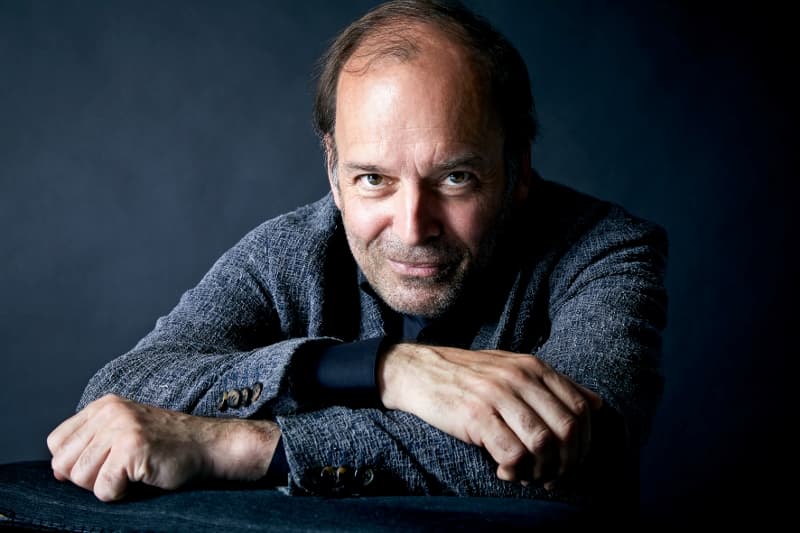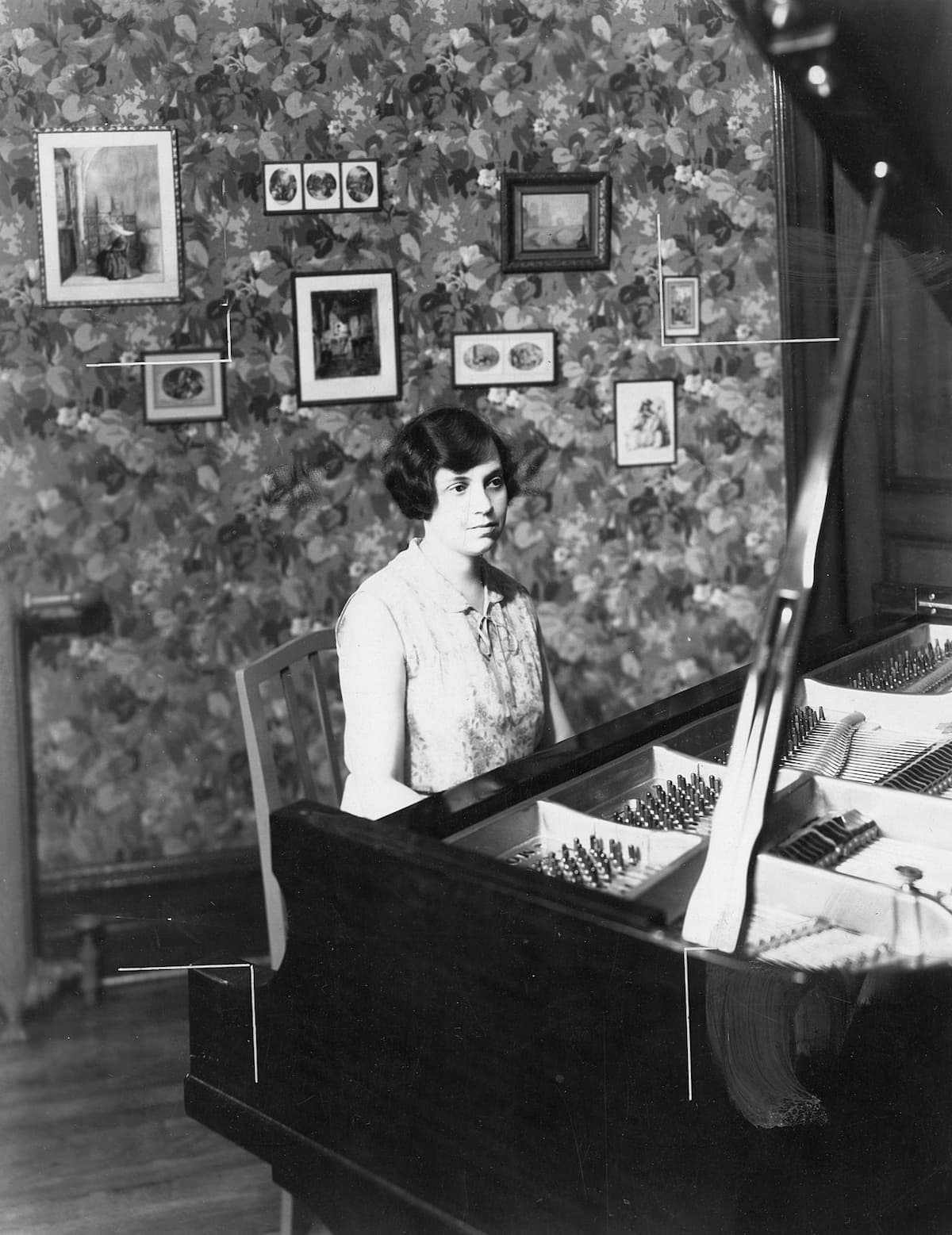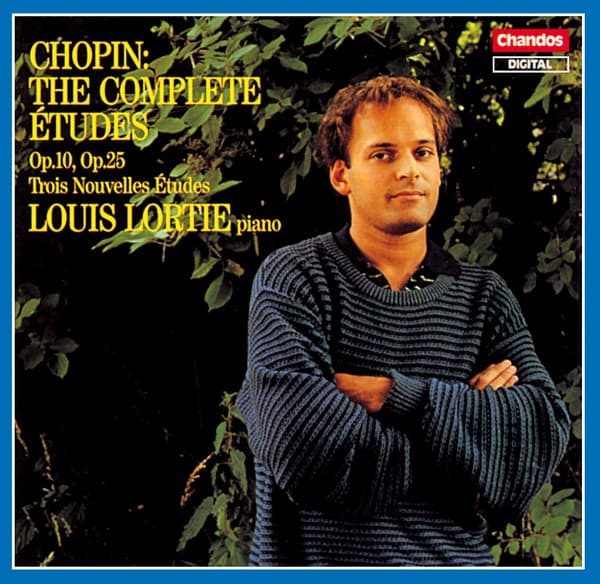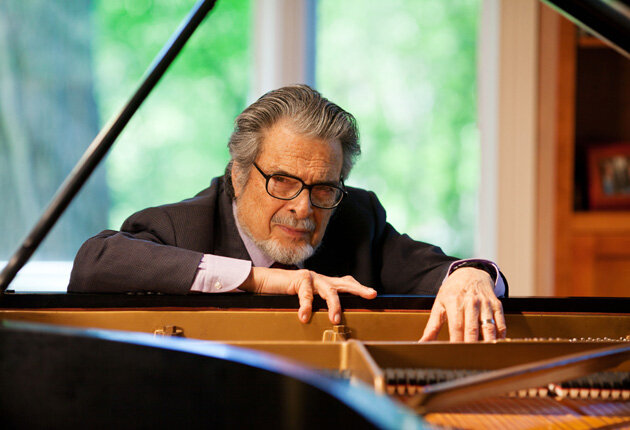Québécois pianist Louis Lortie, born in Montreal on 27 April 1959, has a reputation as one of the world’s most versatile pianists. In his thirty-year relationship with Chandos Records, Lortie has produced a catalogue of well over 45 recordings, with his repertoire ranging from Mozart to Stravinsky, from Beethoven to Liszt, and from Chopin to Lutosławski.
Louis Lortie Performs Beethoven’s Sonata No. 17 in D minor, Op. 21, No. 2
Unorthodox Beginnings

Louis Lortie
Lortie’s father initially worked for a pharmaceutical company as a salesman and later became a manager. He had been forced to take piano lessons as a child, but that particular educational experience did not go well, so there was no pressure on Louis to take up a musical instrument. The family moved to a number of places before returning to Montreal when Louis was about seven years old.
The new residence had an upright piano in the basement. As Lortie remembered, “when the original owners had finished rebuilding the staircase, they found that they couldn’t take out the piano.” According to Lortie, “it was a horrible orange, and it wasn’t really in tune. The first one who played it was my father. It was pathetic. I can remember how he played. That was the incentive. This was so bad; I was sure I could do better.”
Maurice Ravel: Le tombeau de Couperin (version for piano) (Louis Lortie, piano)
Studying Under Yvonne Hubert, Marguerite Long and Alfred Cortot

Yvonne Hubert
Lortie began to study privately, and he signed up with Yvonne Hubert. One of the most eminent professors of Canada, Hubert was enrolled at the Paris Conservatoire and studied piano with Marguerite Long and in 1908, with Alfred Cortot. She performed a number of premiers of works by Fauré, and after moving to Montreal, founded the “Alfred Cortot School of Piano.” A teacher of Marc-André Hamelin, Hubert took on Lortie around the age of eight.
As Lortie remembers, “she was an absolute goddess for fingering and I received amazing schooling. She would take every score and write the fingerings on it for my next lesson. These weren’t just any fingerings: she was a student of Cortot, so these were the very clever fingerings he wrote on all her scores, and I still have these scores. After that, I knew exactly what to do with any passage. You could even call me on the phone, and I could tell you exactly what to do. It made things so much easier.”
Louis Lortie Performs Liszt’s Piano Concerto No. 2 in A Major
Competitions

Louis Lortie’s early recording on Chopin
Lortie was never interested in applying to any of the prestigious institutions or conservatories. For him, it mattered much more with whom he was studying, and the place was really of secondary importance. Lortie travelled to Vienna to study Beethoven with Dieter Weber. “I played a lot of Schumann, Schubert, and Beethoven early on, but the Russian repertoire was my weakness,” he remembers. “However, I did already play all the concertos by Rachmaninoff.”
Lortie won two major Canadian competitions when he was 16 and went on to unanimously win first prize in the 1984 Busoni Competition in Bolzano, Italy. He also placed fourth in the Leeds International Pianoforte Competition in Great Britain in the same year. “I only played two international competitions, and that was that.” For Lortie, competitions are something he needed to do to become known. “It’s an imperfect system, as technical brilliance is part of our generations, but what really matters is the concept, the mind and soul behind the playing.”
Frédéric Chopin: Etudes, Op. 25 (Louis Lortie, piano)
Studying Under Leon Fleisher

Leon Fleisher
Lortie took a good many lessons with Leon Fleisher when he was 20. As he explained in an interview, “ there were still a lot of bad things I did at that age. Like I moved my head a lot.
Noting this, he said things that I will never forget, like ‘Who do you think you are, Stevie Wonder?’ I thought, wow, it must have really looked bad if he said something that like.”
Lortie credits Fleisher with helping him to work on smaller and intricate details. Apparently, Fleisher had all the Beethoven sonatas in his head as he would say on a moment’s notice, “I think you forgot a fermata somewhere.” For Lortie, “Fleisher was a great teacher who knew a vast repertoire, but he also knew each work intimately.” Becoming a professional pianist had not really been on Lortie’s mind as he just loved playing the piano, but then “things evolved.”
For more of the best in classical music, sign up for our E-Newsletter
